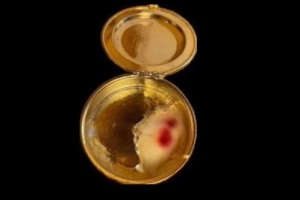STD 'Superbug' Found, Immune to Antibiotics
A “superbug” strain of gonorrhea that has been discovered in Japan. It has been found to be immune to antibiotics, which is the normal treatment for the sexually transmitted disease.
When the new superbug called H041, has been tested with antibiotics scientists found the medicines had no effect at all. Gonorrhea evolves each generation, becoming gradually stronger and more resistant to antibiotics. The concerning issue in this latest strain is that it appears to be completely immune to all previous forms.
According to The Centers for Disease Control and Prevention: "Gonorrhea is caused by Neisseria gonorrhoeae, a bacterium that grows and multiplies in warm most areas of the reproductive tract. For women it grows in areas including the cervix (opening to the womb), uterus (womb), and fallopian tubes (egg canals). In both men and women it can grow in the urine canal (urethra).”
There are other areas the bacterium can grow, such as the mouth, eyes, anus and throat. Anyone who is sexually active is at risk of contracting gonorrhea.
Sexually active teenagers, young adults and African Americans are in the highest risk group of contracting this STD. African-Americans have the highest reported levels of gonorrhea in the United States.
Health advisors say the best prevention is to practice safe sex and make sufficient inquiries of partners about their sexual history. Regular check-ups and screenings are also advised to help prevent spread of the STD.





























